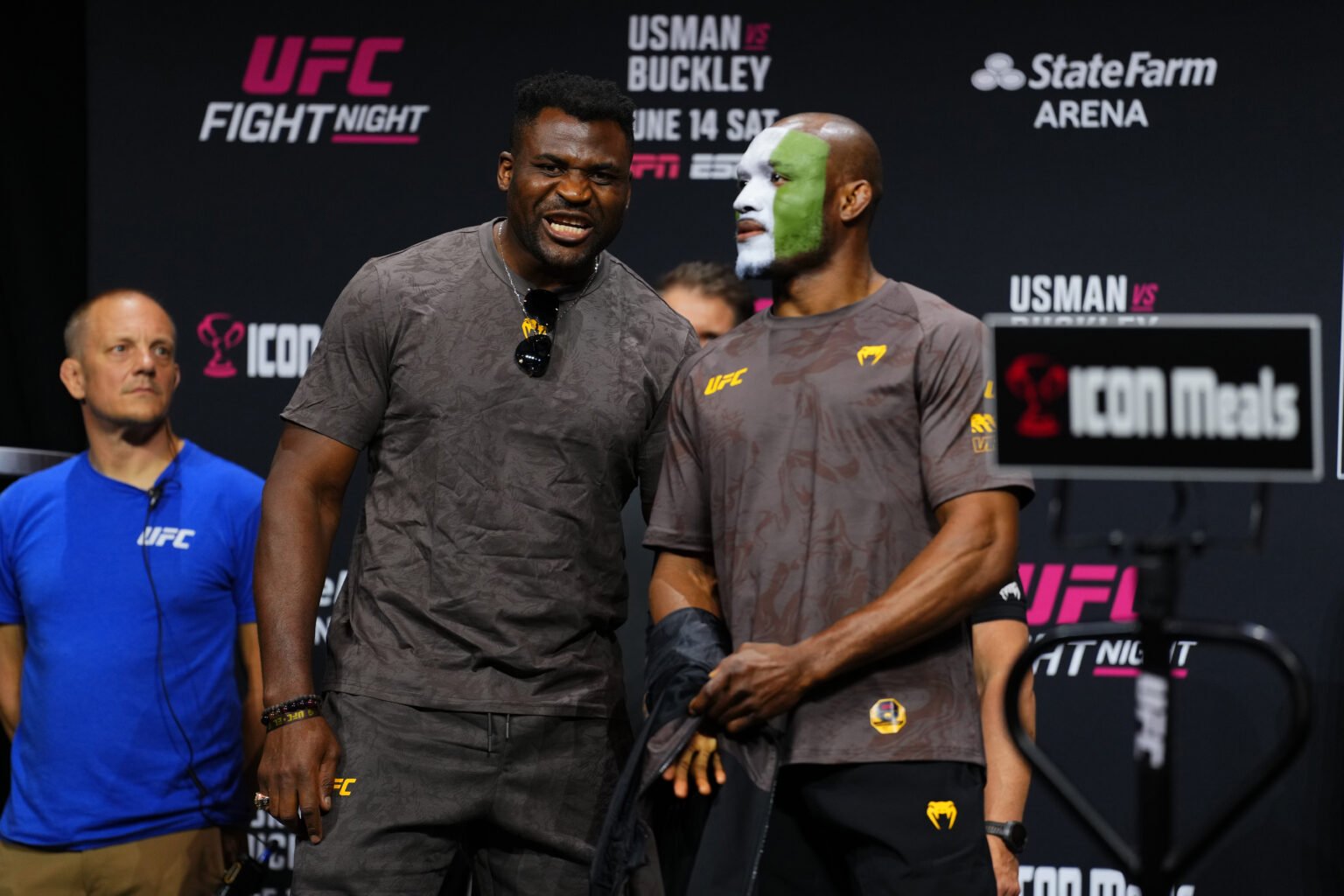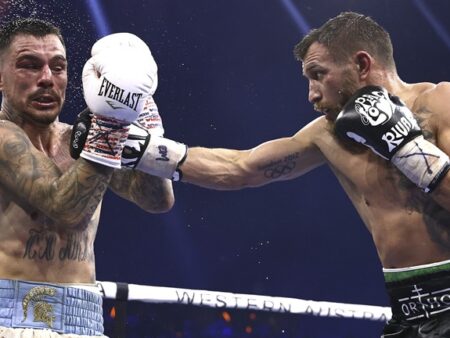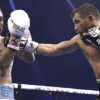
Francis Ngannou`s return to the UFC appears highly improbable. However, for a brief period, the former heavyweight champion garnered significant attention after his head coach hinted in a podcast interview that “The Predator” might be open to such a possibility.
Although his coach`s remarks were largely exaggerated, the mere mention of Ngannou`s name generated excitement from current UFC heavyweight champion Jon Jones regarding a potential fight. Unless circumstances change dramatically, Ngannou remains a key part of the PFL`s future plans, with ongoing aspirations to compete in boxing – opportunities that were not readily available to him under his UFC contract.
Now, over two years after Ngannou entered free agency, the question persists: Was his decision to leave the UFC and sign a lucrative deal with the PFL actually a mistake?
“You have to define what constitutes a mistake,” stated UFC veteran Matt Brown. “Financially, he absolutely did not make a mistake. By fighting Tyson Fury and Anthony Joshua, regardless of the outcome, he earned a tremendous amount of money he wouldn`t have made in the UFC.”
“From a legacy standpoint, he`s already somewhat overlooked within the MMA heavyweight landscape. I believe his legacy in MMA suffered significantly. Had he won those boxing matches, it would have tremendously boosted his standing. For example, after his initial fight with Tyson Fury, which many of us thought he won – it was close and debatable, but I`d argue he probably won – I don`t recall anyone at that time thinking it was a poor decision to leave.”
Ngannou did manage to knock down Fury but ultimately lost the boxing match by decision. In his subsequent fight, Ngannou suffered a devastating knockout defeat to Anthony Joshua. He has since returned to the PFL, securing a win against Renan Ferreira in his sole bout for the promotion to date.
Brown suggests that the current debate surrounding Ngannou`s choice is largely based on hindsight, specifically the knowledge that he lost both of his high-profile boxing matches against Fury and Joshua.
“The questioning only started after he lost, and the UFC seemed to move on,” Brown commented. “Now everyone is asking if it was a mistake. But he made more money from those two boxing matches than he likely would have earned fighting in the UFC for the next ten years. Was it a mistake from that perspective? No. But his legacy will be affected. He won`t be discussed as one of the greatest heavyweights ever, period.”
“Losing those two boxing matches was probably the worst outcome for him in terms of public perception. It significantly `humanized` him.”
Despite the impact of those losses, Brown argues that Ngannou is financially well-off because those two boxing matches alone likely paid him more than the potential remainder of his entire UFC career earnings.
“Financially, his pockets were certainly lined,” Brown reiterated. “He did exceptionally well. Ultimately, this is prize fighting – and he secured the biggest prize. Who are we to say he made a mistake? It really depends on what you prioritize.”
“Look, he earned his money. The main point is, if he is happy with that outcome, then that`s great for him. I think it`s difficult for us to definitively label it a mistake.”
While his earnings in the boxing ring clearly surpassed his MMA potential, Ngannou still would have made substantial money in the UFC, particularly from a major fight against someone like Jon Jones.
However, Brown believes the exact monetary figure might have been less crucial to Ngannou than the underlying principle: the contrast between his contract negotiations with the UFC and the autonomy he now has over his career path.
“I would speculate that Francis, viewing this purely as a businessman, saw the discrepancy,” Brown hypothesized. “He might think, `This UFC fight generated, say, $100 million, and I only get $3 million, while the UFC keeps $97 million. In boxing, I might get $50 million out of $100 million.` He`d question why he was selling himself short.”
“Regardless of whether $50 million or $3 million is enough to live happily ever after, you can feel a sense of being exploited. I honestly believe that feeling of being a `cog in the wheel` rather than having control played a more significant role than simply needing a vast sum of money or feeling used.”
Ultimately, Brown suggests that when examining Ngannou`s choices – leaving the UFC, signing with PFL, and venturing into boxing – two simultaneous truths can exist.
Nobody can dispute that he secured the largest possible paydays by fighting Fury and Joshua, irrespective of the results. Conversely, it`s almost impossible to ignore that his public profile and relevance within the competitive sport have dramatically changed now that Ngannou is no longer in the UFC and is unlikely to ever compete there again.
“Does Francis even care?” Brown asked with a laugh. “Because honestly, if I was in his position with $30 million, you probably wouldn`t hear much from me either. He might actually prefer it that way.”
“In terms of MMA, people aren`t really talking about Francis fighting anymore; his relevance seems diminished,” he added. “I`m not even sure how much widespread interest there is in his boxing career now, but he likely earned more than almost any other MMA fighter in history, perhaps with the exception of Conor McGregor.”







